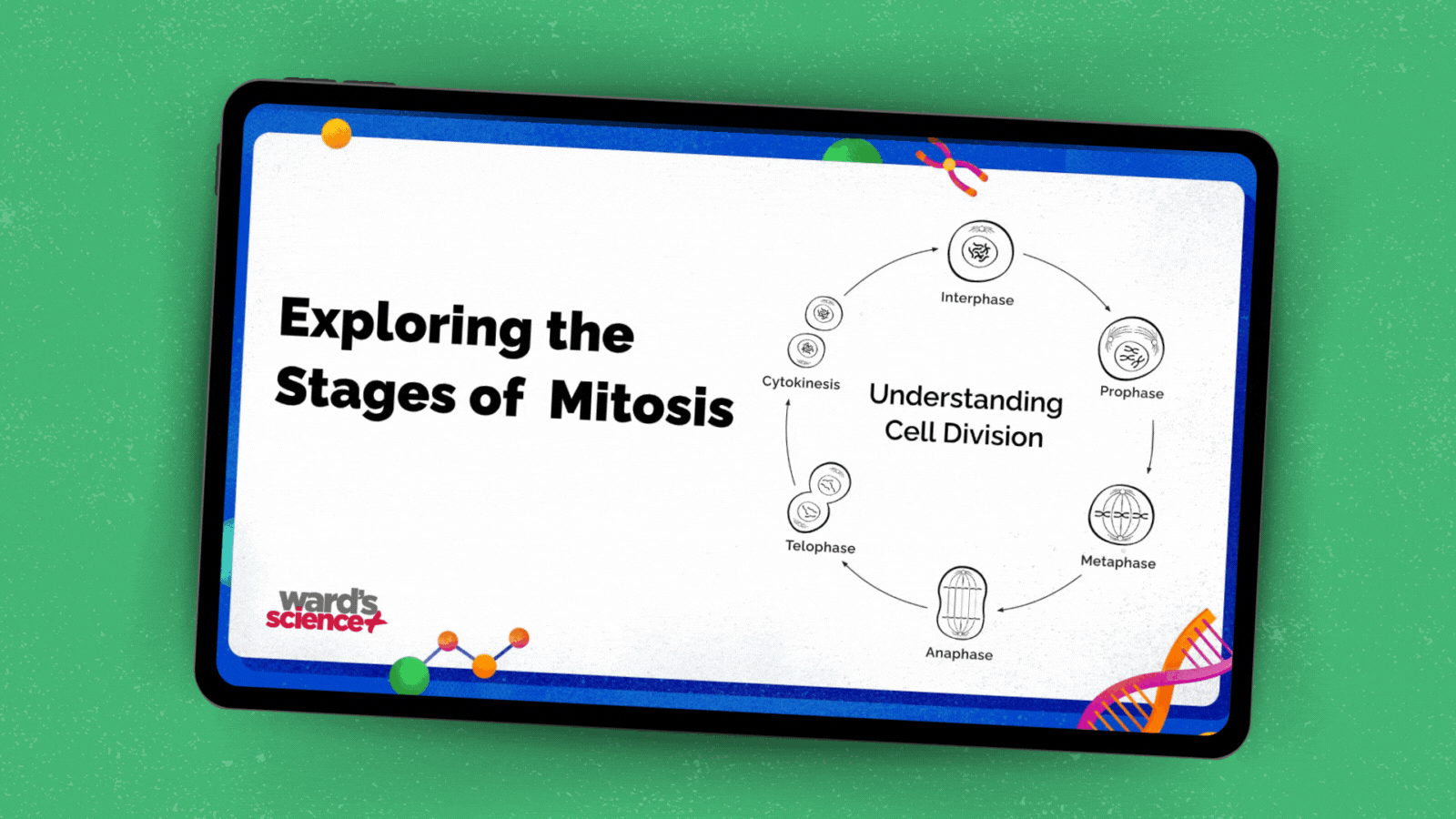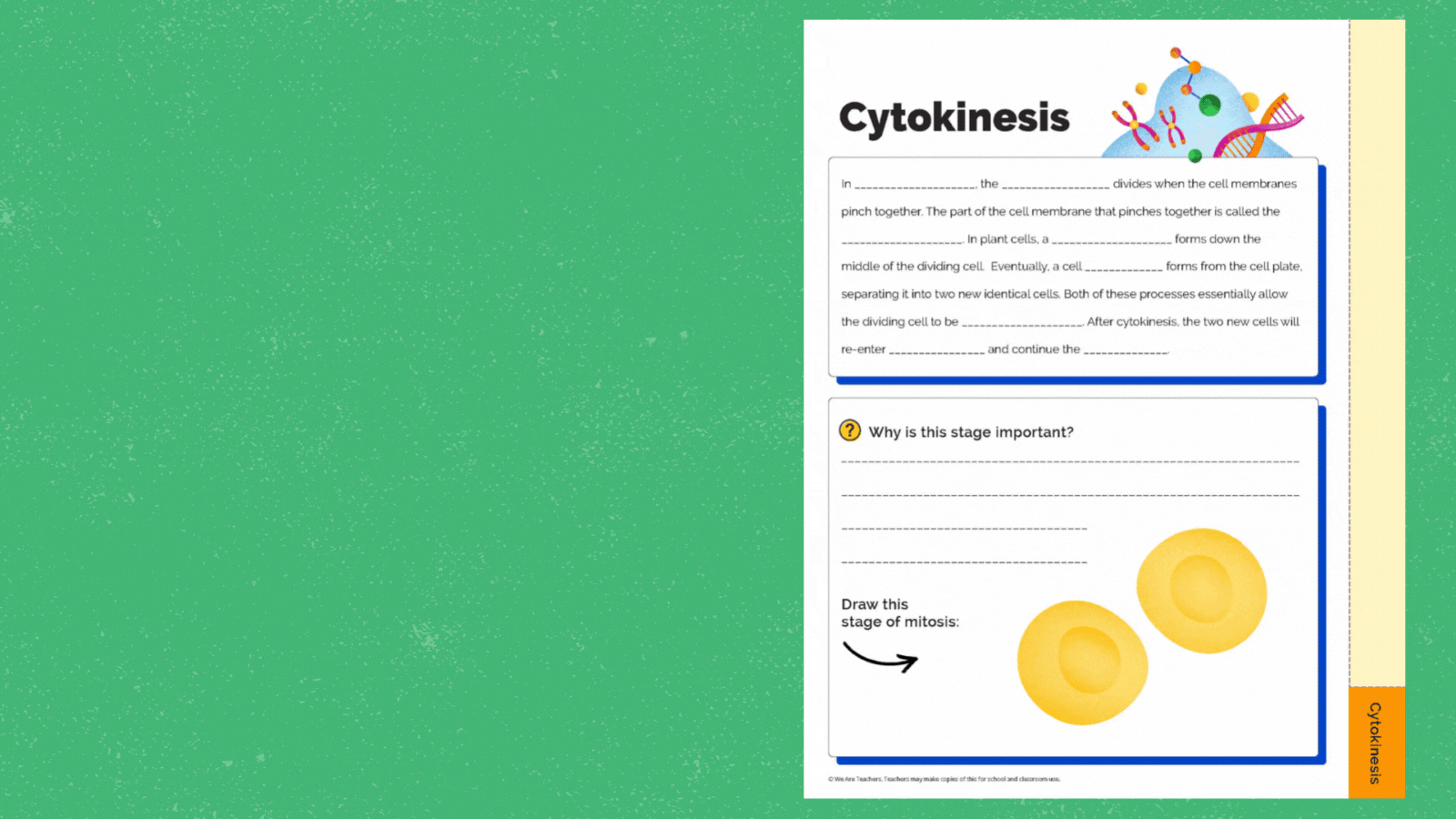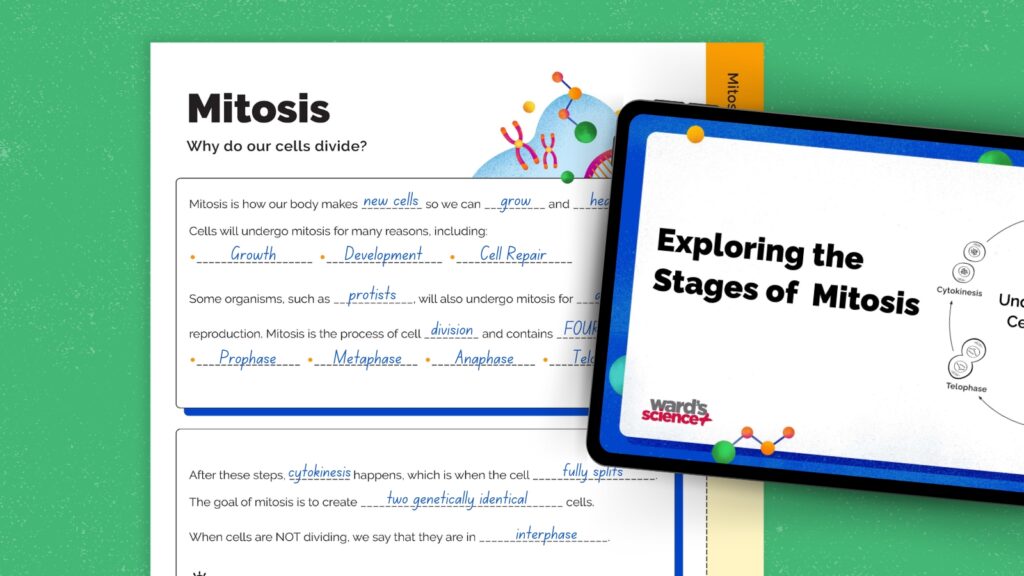[ad_1]
Looking for a new way to teach your students the stages of mitosis this year? We’ve partnered with our friends at Ward’s Science to create a hands-on lesson that covers everything your students need to know. As they complete their own flip-book, they’ll not only get the information they need, but they’ll end up with a learning tool perfect for reinforcing and reviewing the key concepts and terms.
Why teach the stages of mitosis?
This lesson helps students understand how cells grow, repair, and reproduce—key processes that sustain life. It connects to important topics like genetics and biology, giving students a deeper appreciation for living organisms while building a foundation for more advanced science concepts. The activity also perfectly aligns with the Next Generation Science Standards, specifically HS-LS1-4: “Use a model to illustrate the role of cellular division (mitosis) and differentiation in producing and maintaining complex organisms.”
Take a look at what’s included in the lesson:
Slideshow Lesson: Exploring the Stages of Mitosis

In addition to an in-depth teacher’s guide, this Google Slideshow will walk your students through each stage of mitosis. The lesson explains each phase of the cell cycle in clear, easy-to-understand language and includes an illustration to help students visualize the process. Each slide corresponds with a page in the student flip-book, making note-taking a breeze.
Student Flip-Book: For Note-Taking and as a Study Tool

Easy to print and assemble, the student flip-book covers an overview of the cell cycle and features a page for each stage of mitosis. Sections for guided notes illustrate each stage of mitosis and discuss why each stage is important to help reinforce the key concepts you’re teaching. Once completed, the flip-books are a review tool for students.
Get your free flip-book lesson on the stages of mitosis!
Fill out the form on this page to snag your lesson for free.
Looking for more great ways to teach Next Generation Science Standards? These all-in-one kits include everything you need—no extra prep, no scrambling for supplies. Perfect for inquiry-based learning, each kit combines real-world scenarios with robust teaching resources like facilitator guides, differentiation strategies, vocab notes, and ready-to-go student handouts. Whether you’re tackling cell cycles or another exciting topic, Engage Kits make it easy to focus on teaching, not prepping.
[ad_2]
Source link

